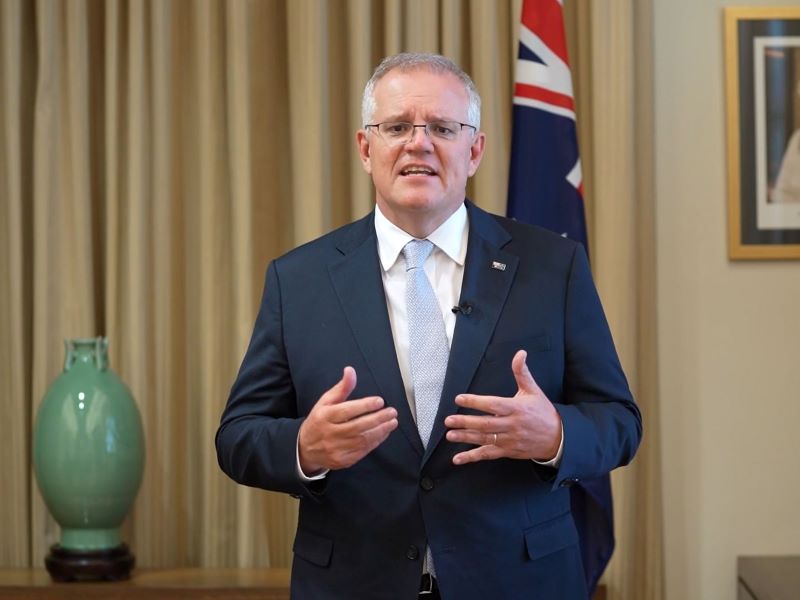Australia’s first Quantum Commercialisation Hub will be established with $70 million in federal government funding over the next decade as part of a push to develop and protect certain critical technologies and supply chains.
The government’s backing of quantum, which also includes a commitment to develop a national quantum strategy and committee led by the chief scientist, has been welcomed by the local sector.
Leading quantum scientists told InnovationAus they want more bold action and a focus on industry and research collaboration to fully capitalise on Australia’s global lead in areas like computing and sensors.
The Federal Opposition also welcomed the new support but warned more will be needed to recapture momentum after years of “policy drift”.

Under the new critical technologies plan, quantum has been identified as one of nine priority technologies considered to have a “significant impact” on national interest now or within ten years.
“Australia is already a global leader in several aspects of quantum technology,” Prime Minister Scott Morrison said Wednesday in announcing the new critical technologies initiative.
“We have some world class research capabilities and scientists, and strong foundations for a thriving quantum industry. Now we need to take it to the next level.”
The government will invest $70 million over a decade in a new Commercialisation Hub it says will address supply and demand side challenges for the local industry. The new hub will be co-funded with industry and focus on “commercialising quantum research and building market demand for Australian products” as well as funding joint ventures, according to the lightly detailed action plan.
The hub will use existing infrastructure and run in conjunction with state and territory under a national approach that also seeks to help local companies access international markets and supply chains.
“This is about capitalising on our competitive advantage and taking our research to the world. The Hub will be designed to attract private co investment partner with equivalent bodies among like minded nations,” Mr Morisson said, revealing Australia has signed one such joint cooperation agreement with the US.
Australian National University Department of Quantum Science professor John Close welcomed the new support, saying Australia’s quantum sector is well placed to take advantage of it.
“It’s really, really well placed to not only develop devices for civilian applications, for defence and national security, but also realise the economic benefits of that quantum revolution that’s happening.
“So we’re in a tremendous starting position,” Professor Close told InnovationAus.
Where the government hub funding is spent will be critical to the success of the new venture, Professor Close said, arguing it would have most impact in facilitating industry academic-partnerships and allowing industry to fund later stage engineering.
“I think that amount of money [$70 million over ten years] could be very useful. Of course, if the private investors don’t come on board, in that they don’t see commercial opportunities in this [quantum] technology, then $7 million a year is certainly not going to produce devices alone at all. It’s not even close.”
The $70 million in funding for the commercialisation hub is part of a $111 million quantum package announced Wednesday. The package also includes the establishment of a National Committee on Quantum, comprised of industry stakeholders and experts to be led by Australia’s Chief Scientist, Dr Cathy Foley.
Dr Foley will also lead the development of a National Quantum Strategy and quantum technologies prospectus in the hopes of aligning public and private investment.
CSIRO has estimated the global quantum industry could create 16,000 new jobs and be worth $4 billion dollars to the Australian economy by 2040, making it comparable to current estimates of Australia’s wool and wheat industries.
Professor Michelle Simmons, whose Silicon Quantum Computing company is racing to develop the world’s first commercial grade quantum computer, said Australia had built up a quantum manufacturing industry over decades and now is the time to capitalise with “bold” actions.
“Australia already has a leadership position in bringing government, industry and research together to translate research into commercialisation,” she told InnovationAus.
“We now need to maintain our focus on prioritising and accelerating our areas of strategic advantage in quantum computing to continue building Australia’s sovereign capability.
“For example, at Silicon Quantum Computing, we are focused on building a quantum computing processor and manufacturing capability here in Australia. We employ engineers at every level of the computing stack, from the hardware to controls, to the application layer, which will create a whole new transformational computing industry.”
Shadow assistant minister for cyber security and communications Tim Watts also welcomed the support but said more would be needed.
“The government’s announcement today is a start but we have a lot of catching up to do to undo the damage of years of policy drift,” he told InnovationAus.
Mr Watts recently warned the local quantum sector was losing its edge after years of underfunding compared to competing countries.
“While the government’s dithered we’ve had some of Australian’s best talent in these areas leave for better opportunities overseas,” Mr Watts said.
“It’s important that the government acts quickly to regain momentum in this important space.”
Do you know more? Contact James Riley via Email.

